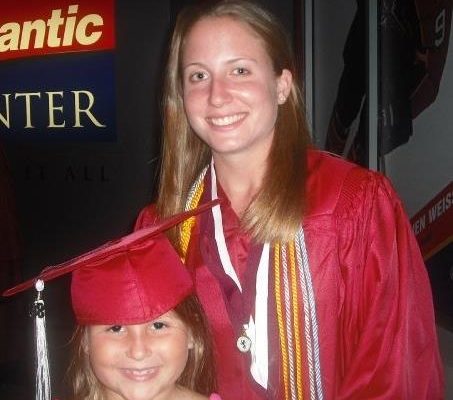When I was in college, I was eager to graduate and step out into the real world. I kept thinking that my life would really start after graduation. It was all so exciting!
As I approached graduation, I did all I could to have a job set up as soon as I had that marvelous degree in my hands. I met with my career counselor, emailed companies, met executives and showed them how eager I was to put my knowledge to work for them.
It worked! Before I even walked on stage to receive my hard-earned degree, I was scheduled to begin my first ever real job, which marked the start of my career.
With that real job came a 40-hour work week. It wasn’t too long before I thought, “Was this what I was so excited about?”
What You Need to Know About the 40-hour Work Week
It’s not easy to transition from college life to the real world. In college, you have a lot of freedom. To help you, here are some lessons to help you mentally prepare, which will make it much easier for you.
Lesson #1: Kiss Sleeping In on Weekdays Goodbye
If you didn’t have a class until noon in college, you could sleep until 11:45 and make it to class on time. When you’re in the real world, you start work at 8 or 9, so that means you’re up around 7 AM – every single weekday. And you had better be up, or you’ll risk losing the job you worked so hard to get. It’s hard to get used to at first, but setting up a good regimen definitely helps.
Lesson #2: You’re Too Tired at Night to Do Anything
In college, you could go to classes all day long, study for a couple of hours, and then hang out with friends until the wee hours of the morning. That’s over. When you get home from work around 5, 6 or 7, you’re going to be so tired that you’ll be lucky to eat dinner before you crash. Welcome to the world of adulthood! Crock-pot dinners and cleaning hacks make it a lot easier to relax when you get home.
Lesson #3: You’ll Have to Make Deadlines
In college, you could miss a due date here or there without much repercussion. When you’re working, though, you could lose your job for missing a deadline. The pressure will be on, and you’ll find yourself working harder than you ever did because the threat of losing your job is real. It’s critical that you develop strong organization and time-management skills to help you stay on track.
Lesson #4: The Weekends Are for Errands and Relaxing
Weekends were the time to party in college. Chilling out happened during the day as you waited for the night’s festivities to start. When you’re working 40 hours a week, the weekends will be your time to run errands, sleep, veg and just hang out with friends. For most people, myself included, the partying that happened in college is now too exhausting to make a nightly occurrence. And recuperating after a long week of work is essential. It’s important to still have some fun, though, so try to make the most of your weekends so you have everything done in time to go out on Saturday night.
Lesson #5: You Have Way More Responsibilities – and Bills
Your main responsibility in college was to get good grades. That’s it. And you likely don’t have too many bills, either, since apartment complexes typically lump most utilities together.
When you’re out working a real job, you have many more responsibilities – and the pay check that once seemed enormous gets a lot smaller when you realize how many bills you have to pay. The real stress begins when you lump all of these together, and you have real adult situations to take care of.
Here’s a bonus tip that I read before I graduated: Live as poor as you can, even when you’re making more money. Learn to cut-back and try the little tricks to save money on things like insurance and groceries so you have more money left over for yourself.
Lesson #6: Commutes Are Long
The farthest college class I had was a 15-minute walk across campus. Even when I lived off campus, it only took 10 minutes to drive and park for class. Now, it can take an hour or more to get to work because of traffic. Yes, work and commuting take up most of my life now, but there are always ways to make the most of your drive. I like to listen to audio books or make phone calls to make the time go faster and get some work done at the same time.
Lesson #7: It’s a Different Kind of Awesome
College was fun. It was great to walk around campus, be independent and hang out with friends. It was an experience that prepared me to enter into the world of adulthood with some of the knowledge and skills I needed.
As I entered into the 40-hour work week, I realized that the real world was a bit different than I imagined. It wasn’t all that I thought it was because, of course, on the outside looking in, life looked so easy.
However, it’s still awesome. I’m an adult now. I can see how I transitioned from high school to college, and then college to adulthood. It feels amazing to grow, adapt and succeed.
The last lesson I’ll give you as you transition is to keep your enthusiasm. This is everything you’ve been imagining, and while it’s not as perfect as you may have dreamed, it’s still the life you’ve worked hard to achieve.
You will get used to the differences that come with this stage of life. Embrace the changes and go with the flow. You’ll learn to love everything about your new life – and never want to go back to those crazy college days.
Sarah Landrum is a freelance writer and the founder of Punched Clocks, sharing advice on finding happiness and success in life and at work. After graduating from Penn State, she moved to Harrisburg to start her career – and is loving every minute of it. Follow Sarah for more advice and a glimpse into the many, many things she learns from @SarahLandrum
Make Monday Morning’s ROCK!
Email Address *
Email Format




